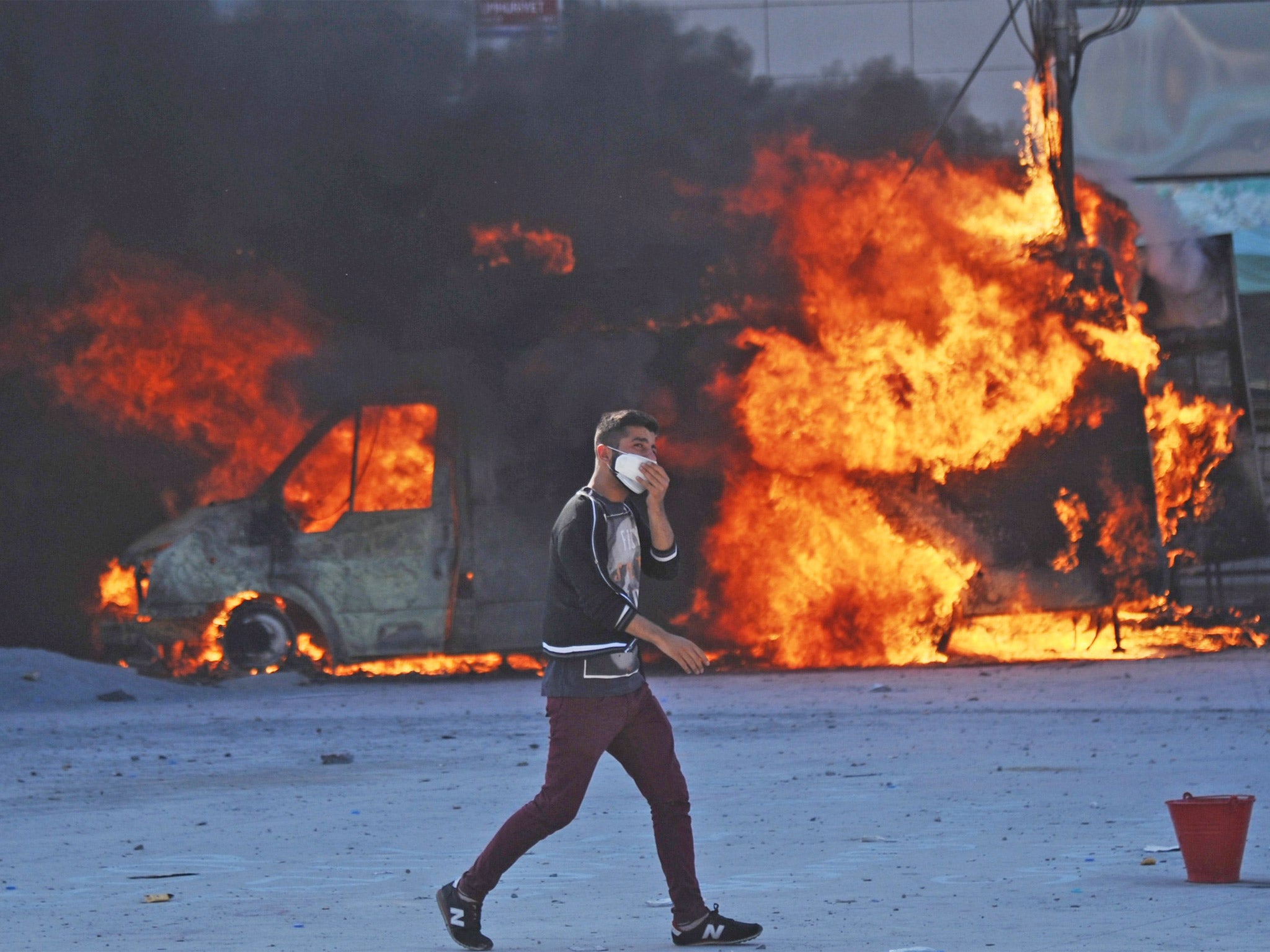Voices in Danger: 'I have worked in war zones but Taksim was terrible'
In December, Reporters Without Borders branded Turkey the world’s biggest jail for journalists. Since the protests began, it's only gotten worse

Your support helps us to tell the story
From reproductive rights to climate change to Big Tech, The Independent is on the ground when the story is developing. Whether it's investigating the financials of Elon Musk's pro-Trump PAC or producing our latest documentary, 'The A Word', which shines a light on the American women fighting for reproductive rights, we know how important it is to parse out the facts from the messaging.
At such a critical moment in US history, we need reporters on the ground. Your donation allows us to keep sending journalists to speak to both sides of the story.
The Independent is trusted by Americans across the entire political spectrum. And unlike many other quality news outlets, we choose not to lock Americans out of our reporting and analysis with paywalls. We believe quality journalism should be available to everyone, paid for by those who can afford it.
Your support makes all the difference.The number of journalists being injured and arrested in the Turkish protests has risen dramatically in recent days amid claims they are being deliberately targeted by both police and protestors.
At least three journalists were injured during yesterday’s clashes alone, Reporters Without Borders, said, when the police used force to clear Taksim Square.
That added to more than 14 who had been injured by Friday, some seriously, since the troubles began in Istanbul and elsewhere.
RWB also said the number of journalists being arrested is a serious worry, citing the examples of two TV journalists and even a French journalism student on the Erasmus exchange programme. The organisation in December branded Turkey the world’s biggest jail for journalists.
An RWB spokesperson said today: “We are becoming increasingly concerned about the dangerous climate for journalists covering Turkey’s protest movement. Two weeks after the start of the anti-government protests, journalists are the targets of police violence, threats from government officials, and protester suspicion. We urge all parties to respect journalists and refrain from attacking them.”
Many of the journalists are suffering head wounds from gas canisters fired by police.
Freelance journalist Ahmet Sik, who had already been injured on 31 May, was hit on the head by a tear-gas canister again yesterday but was not hurt because he was wearing a helmet.
“I have worked in war zones but Taksim was terrible,” he told RWB. “The security forces were hunting people down. Media personnel are targeted twice over. By demonstrators who think they are siding with the government and not covering events properly. And by the security forces, who deliberately fire at us.”
Meanwhile, police have ransacked the offices of the Turkish Communist Party’s Sol newspaper, using teargas and water cannon inside the building, which also houses the party headquarters. Sol’s Ankara representative Hatice Ikinci, reporter Fatoz Kalacay and website editor Can Soyer were all manhandled during the raid, RWB said.
In some cases, journalists have been targeted by the crowds amid widespread disaffection with the mainstream media, which is seen by many to be dominated by big business interests. One of the leading news channels, NTV, had one of its news vans destroyed in Taksim Square and ended up apologising for its coverage of the protests. The Committee to Protect Journalists said the channel’s coverage had improved since Dogus Media chief executive Cem Aydin told its 300 employees: “Our audience felt betrayed.”
A CPJ report this week said: “In the highly polarized Turkish environment the press is often seen as part of deeply entrenched and volatile ideological alignments. News outlets are regularly considered "weapons of the enemy" and therefore their journalists, news vehicles, and headquarters are seen as legitimate targets by angry and vindictive demonstrators. This polarization also undermines solidarity among journalists and weakens their capacity to stand up as a profession against the authorities' challenges to press freedom.”
Liberalisation and consolidation has seen big companies mixing ownership of media and non-media interests such as public works, tourism or energy that are heavily dependent on state contracts and policy.
Reporters Without Borders listed the TV stations being protested against for their coverage as CNN Turk, Haber Turk, Kanal D, ATV, Star TV, Show TV and TRT as well as the newspapers Star, Sabah and HaberTurk.
RWB in December branded Turkey “the world’s biggest jail for journalists”. It said there were a total of 72 media personnel detained, of whom at least 42 journalists and four media assistants are being held in connection with their media work. The Turkish government argues that those jailed are a security risk. Most are of Kurdish origin, RSF says.
In the current unrest, four TV stations closely covering the Occupy Gezi movement have received stiff fines from the broadcast media regulator RTUK for “harming the physical, moral and mental development of children and youths” by broadcasting footage of the clashes.
Hakan Aygun, the managing editor of one, Halk TV, said the fines were an attempt to intimidate journalists into reporting the govenrment’s view of the protests. He told RWB the regulator’s members were named by Turkey’s political parties: “We were fined by the six elected members chosen by the ruling AKP party,” he said. “The other three members objected, but they were unable to prevent the fine.”
Aygün added that Halk TV would take the case to the European Court of Human rights if RTÜK’s decision was not overturned on appeal. This would be a first for Turkey’s privately-owned national TV stations
Find out about the Voices in Danger campaign here.
Join our commenting forum
Join thought-provoking conversations, follow other Independent readers and see their replies
Comments